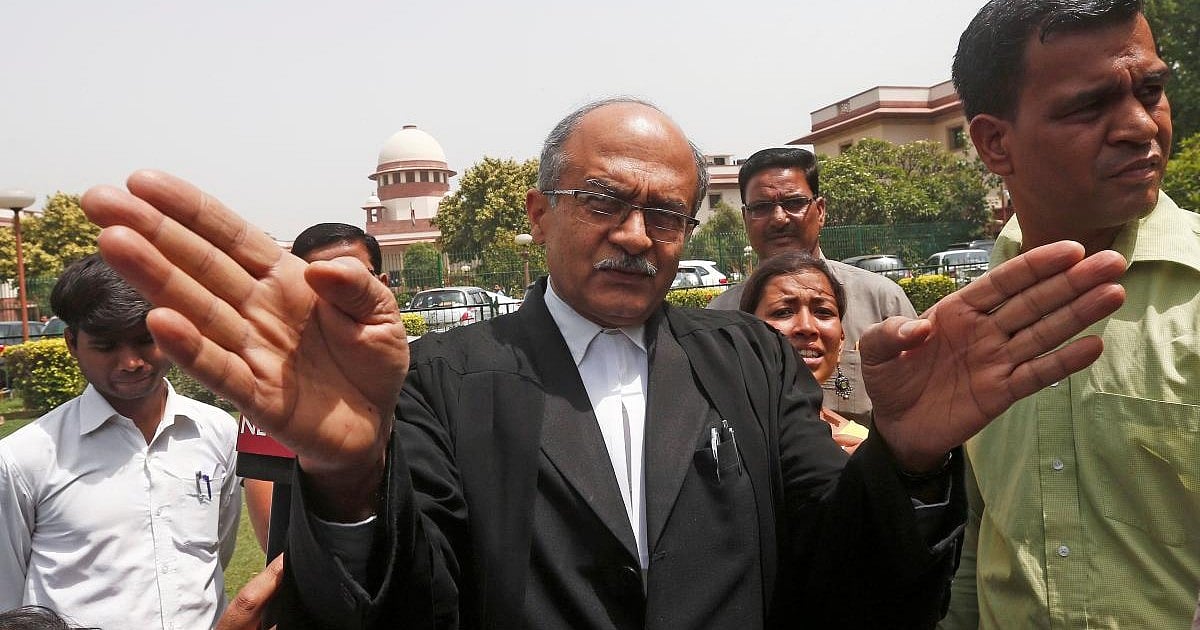 |
|
Prashant Bhushan, a prominent lawyer and activist known for his advocacy for judicial reforms, has filed a complaint demanding an 'in-house' inquiry against an Allahabad High Court judge. The complaint, submitted to the Chief Justice of India (CJI), stems from the judge's participation in a Vishva Hindu Parishad (VHP) event and subsequent comments made regarding the Uniform Civil Code (UCC). The nature of the judge's remarks at the VHP event remains unspecified in the provided text, but their content is clearly deemed controversial enough to warrant a formal complaint of this nature. This action highlights ongoing concerns about the impartiality of the judiciary and its engagement with potentially politically charged events.
The Campaign for Judicial Accountability and Reforms (CJAR), an organization actively involved in promoting judicial transparency and ethics, has publicly supported Bhushan's complaint. CJAR's statement emphasizes that the judge's actions constitute a breach of the solemn oath taken by all judges to uphold the Constitution impartially. The organization contends that the judge's involvement in the VHP event, coupled with the controversial comments made there, represents clear judicial impropriety. This raises a critical question about the boundaries of judicial conduct, particularly regarding participation in overtly political or religiously affiliated events. The potential for such involvement to undermine public trust in the judiciary's impartiality is a serious concern.
The demand for an 'in-house' inquiry suggests a preference for an internal investigation within the judicial system itself, rather than an external or public inquiry. This approach, while potentially maintaining internal cohesion within the judiciary, also raises concerns about the possibility of bias or a lack of complete transparency. The success of the complaint hinges on whether the CJI deems the allegations serious enough to warrant a formal investigation. The outcome of this complaint will have significant ramifications for judicial ethics, standards of conduct for judges, and public perception of the judiciary's independence and impartiality. Similar cases in the past have sparked broader debates on the balance between a judge's personal beliefs and their professional obligations to remain neutral and uphold the Constitution.
The Uniform Civil Code (UCC) itself is a highly contentious and politically charged issue in India. Its implementation is likely to involve significant social and legal changes, making it a sensitive topic for any judicial figure to engage with publicly. The implications of the judge's comments on the UCC, therefore, extend beyond a simple assessment of judicial impropriety. They bring into sharper focus the broader debate surrounding the UCC, its potential impact on various communities, and the role of the judiciary in navigating such complex socio-political issues. The judge's actions highlight the delicate balance judges must maintain between their personal views and their official duties, especially when dealing with sensitive and politically charged subjects.
This situation underscores the ongoing need for robust mechanisms to ensure judicial accountability and transparency in India. While the judiciary plays a crucial role in upholding the rule of law, it is also vital for judges to be seen as impartial and above reproach. The outcome of this case could lead to a reevaluation of the existing codes of conduct for judges, potentially resulting in stricter guidelines concerning their participation in political or religiously affiliated events. It could also serve as a significant precedent for future cases involving allegations of judicial misconduct.
Looking ahead, this incident serves as a potent reminder of the importance of preserving public trust in the integrity of the judiciary. The demand for an internal inquiry suggests an attempt to address the matter within the system, prioritizing the preservation of judicial independence. However, the outcome will ultimately determine whether the system itself possesses the mechanisms and resolve necessary to fully address such critical accusations and ensure future adherence to the highest standards of judicial ethics and impartiality. Transparency in the investigation and a fair process will be crucial in maintaining the public's confidence in the judiciary's ability to effectively hold itself accountable.
